Several summers ago this juvenile Swainson’s Hawk in southwest Montana allowed me to photograph it performing some interesting behaviors.
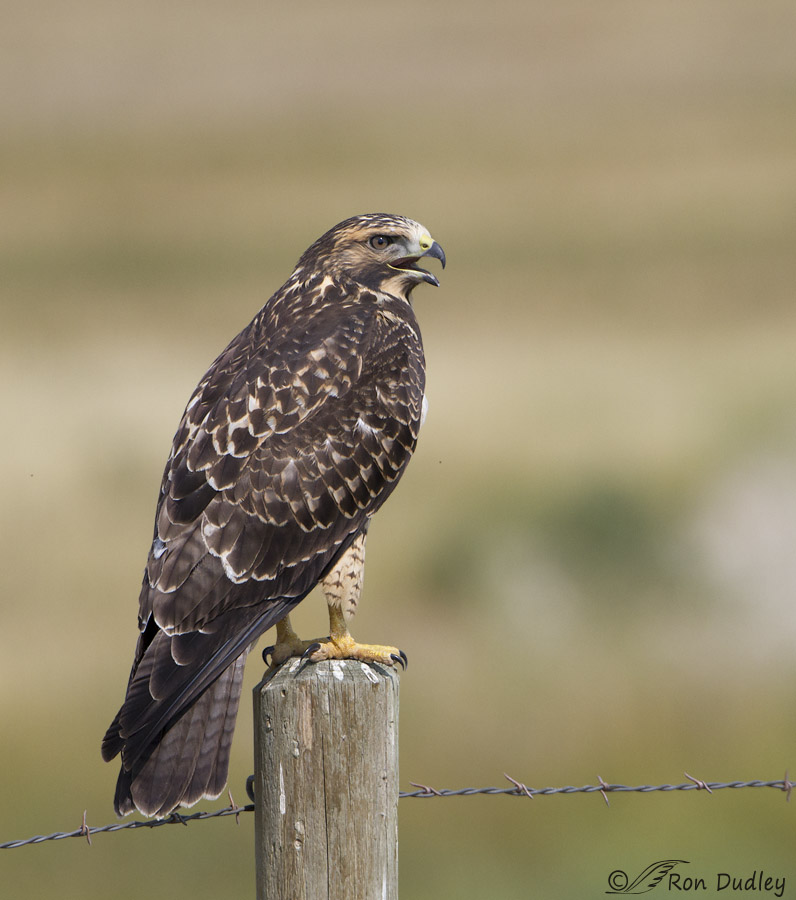 1//1600, f/8, ISO 500, Canon 7D, Canon EF500mm f/4L IS USM, not baited, set up or called in
1//1600, f/8, ISO 500, Canon 7D, Canon EF500mm f/4L IS USM, not baited, set up or called in
It would hunt voles and grasshoppers from fence posts next to the road and seemed barely aware of my presence as it did so. Sometimes it would land on a post within just a few feet of my pickup.
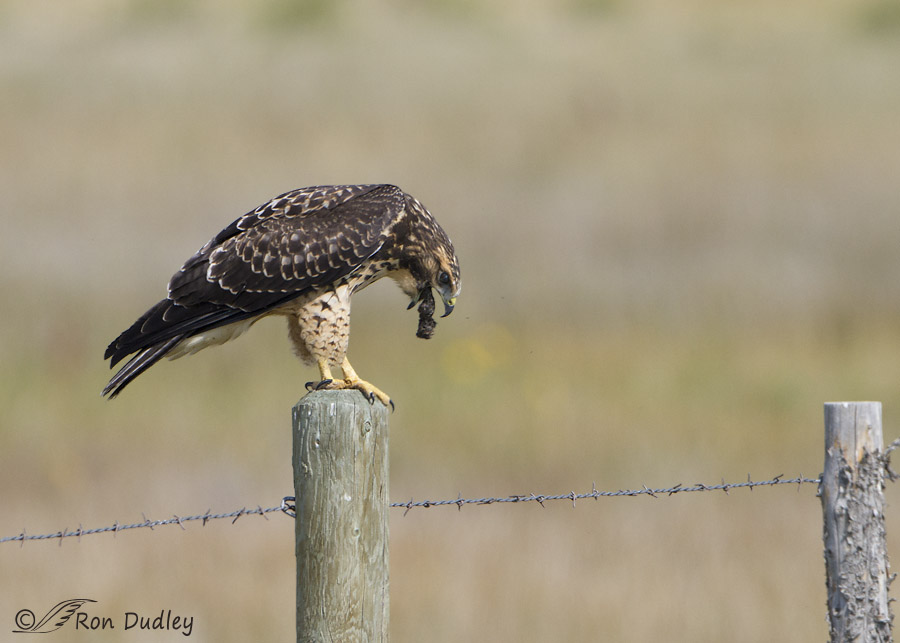
1//2000, f/7.1, ISO 500, Canon 7D, Canon EF500mm f/4L IS USM, not baited, set up or called in
After it landed on this more distant post the bird started hacking and eventually cast two pellets – this is one of them.
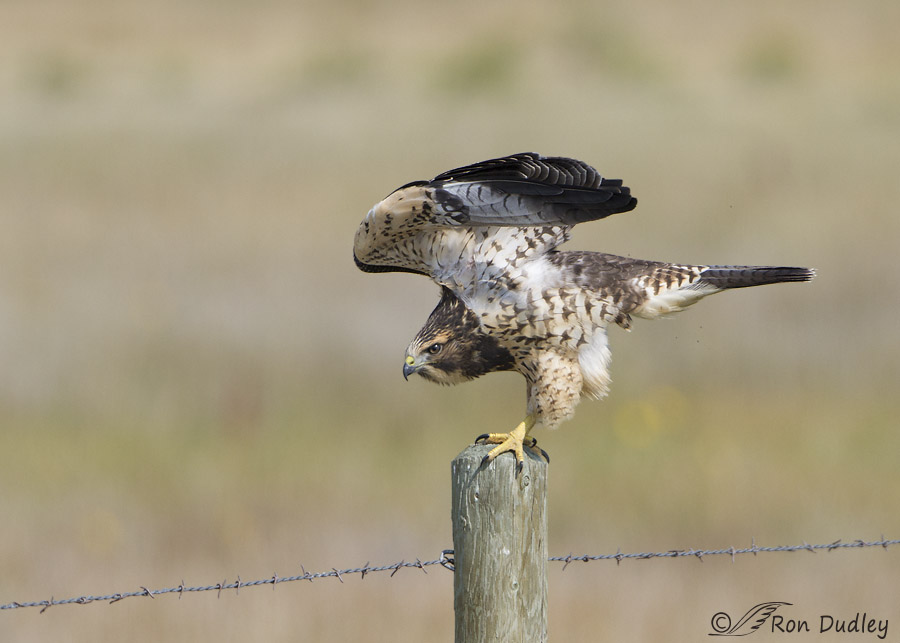
1//1600, f/7.1, ISO 500, Canon 7D, Canon EF500mm f/4L IS USM, not baited, set up or called in
Soon it turned on its perch and stretched – an almost sure sign of imminent take-off so I was ready…
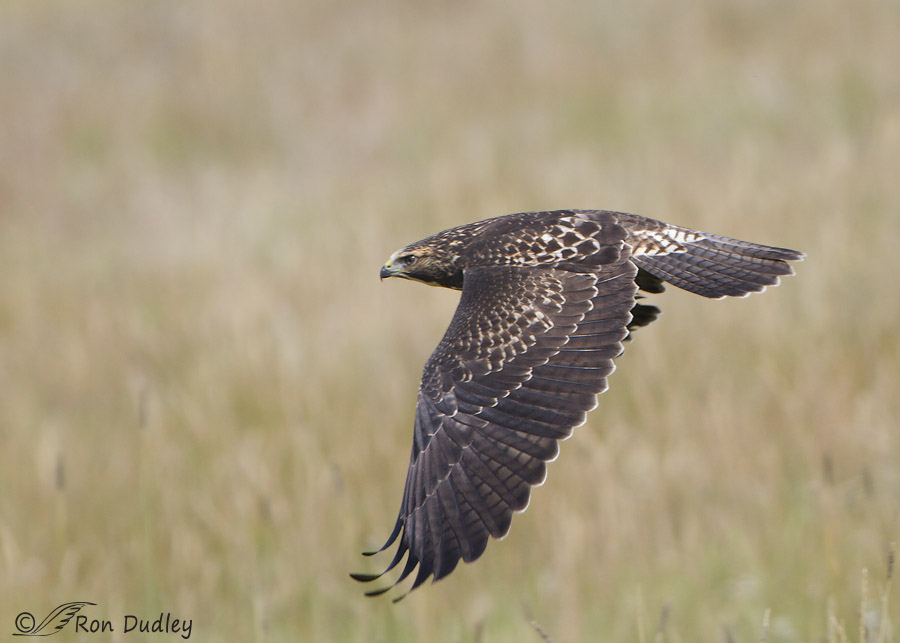
1//1000, f/7.1, ISO 500, Canon 7D, Canon EF500mm f/4L IS USM, not baited, set up or called in
and was able to capture several images of the hawk in flight soon after it launched.
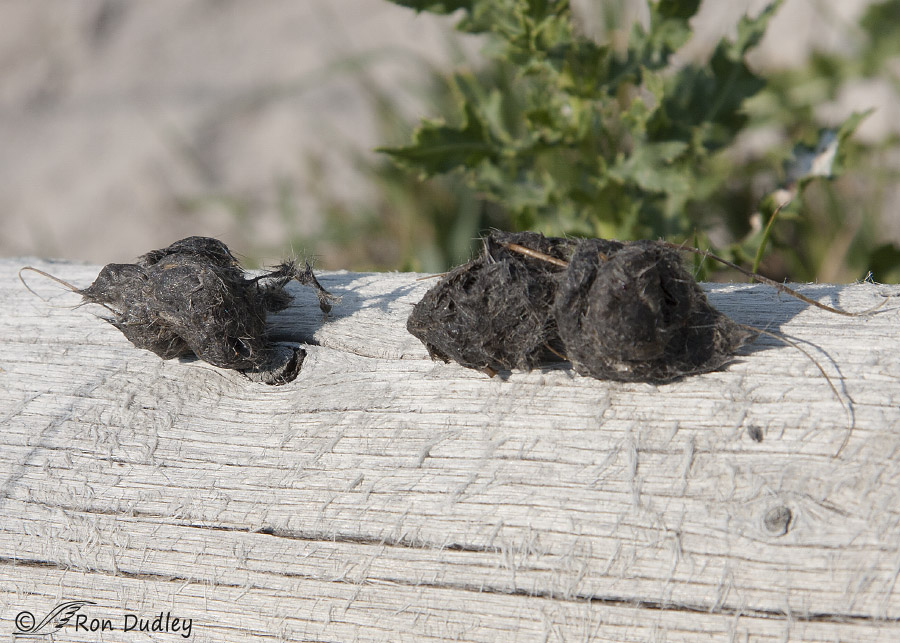
After the bird left I retrieved the still wet pellets it had just cast for inspection. For much of the year Swainson’s Hawks primarily eat grasshoppers but during the breeding season and soon after they mostly consume rodents. These pellets were composed of mammal fur with a few small bones so I suspect this bird was eating voles almost exclusively. I thought it was interesting how the pellet on the right actually resembles a vole, including a beady black eye and tail…
Swainson’s Hawks migrate to South America for the winter so of course I haven’t seen any for months but a friend in Arizona reported seeing an adult light morph near Tucson at the beginning of this month (about 4 weeks early).
It seems that even Swainson’s Hawks may be confused by this crazy warm weather we’ve been having here in the west.
Ron


Beautiful shots and I enjoy the accompanying descriptions and comments as well. Lots to learn! Thanks
Thanks very much, Larry.
Fascinating. I really liked that you shared the photo of the pellets!
Good, I’m glad you enjoyed that shot, Arwen.
Gorgeous shots of a beautiful bird! I’m not surprised that people are seeing birds that are confused by the weather. We’ve noticed ‘our’ Kestrels starting to hang around their nest tree in the last week or so. A couple of years ago they were nesting in March (with early June fledging), but it seems like it was later in the month. Last year they apparently did the nesting in May or June (August fledge). It’s confusing on this end, too.
Susan, we’ve had Golden Eagles on eggs for at least a week now. Lots of other signs of season confusion in our birds and other wildlife too.
Very interesting! I used to have my biology class take apart wild owl pellets and develop a list of food items that the specific species of owl/owls eat and depended upon. It was a great lesson for my kids, and I like to believe that it gave them a greater appreciation of the natural food chain that exists in the wild.
Many thanks for the lesson, much appreciated.
I did the same with my zoology students, Dick. Most kids love that kind of thing and they learn from it too.
It resembles a vole…or a dark, graey hampster!!! Those are BIG castings!!!! The one on the left resembles a bird (tail sticking out to the left)
I hadn’t noticed the one on the left looking like a bird but I see it now that you mention it, Patty.
Terrific images and information, Ron! Got to see my first Loggerhead Shrike recently expelling a pellet. The more stuff I learn about birds and Nature the more fun I seem to have! Go figure.
Shrikes are champs at casting pellets, Wally. They’re usually pretty quick doing it so you have to have a fast trigger finger to capture it.
Sensational shots Ron, very interesting info.
Charlotte
Thank you, Charlotte.
Ron, when I show kids owl pellets sometimes almost the whole skeleton is easily visible. Your vole was most enjoyable. Thanks for your vision of the ordinary.
That makes sense since owls usually swallow their prey whole, Diana. Thank you.